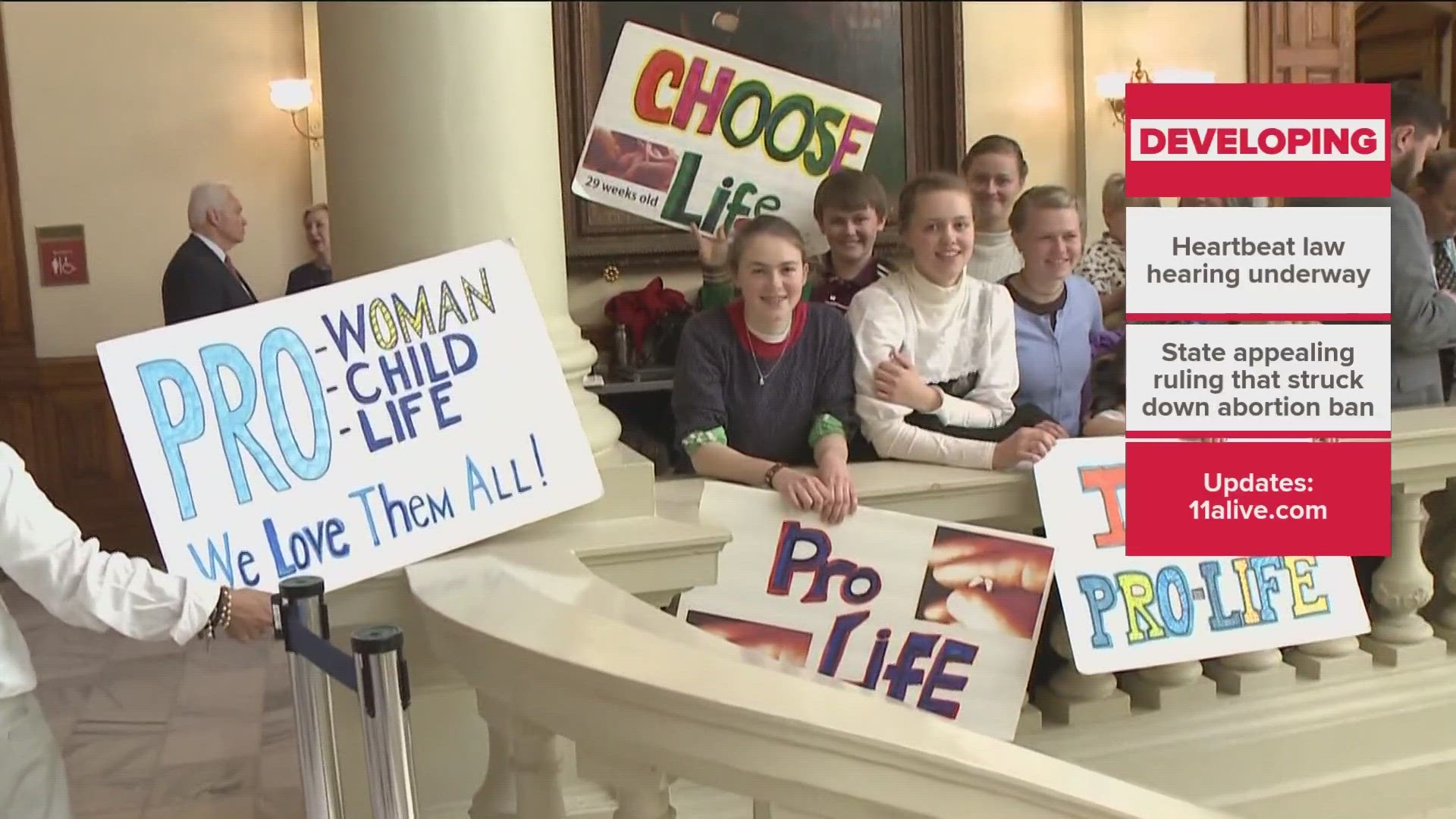ATLANTA — Georgia Supreme Court justices voiced skepticism Tuesday for the arguments in favor of striking down the state's 2019 "heartbeat" law that generally bans abortions at six weeks.
The law was overturned last year in a decision by Fulton County Judge Robert C. I. McBurney that rested on a legal principle known as ab initio.
McBurney's application of ab initio held that the 2019 law was unconstitutional when passed, and thus invalid from the get-go.
The state Supreme Court then reinstated it upon appeal, putting the law into effect for the last several months, creating a near-total ban on abortion.
"Those provisions exist on paper only," McBurney said in his order overturning the ban. "They have never had legal effect in Georgia. They were and are void and must be re-enacted in our post-Roe world if they are to become the law of Georgia."
But that application of ab initio faced concerted questioning from Georgia Supreme Court justices on Tuesday when argued by the plaintiffs' lawyer, Julia Stone. She is representing the SisterSong Women of Color Reproductive Justice Collective and other groups that sued to stop the law after it was passed in 2019.
"For 50 years, the rule was states could not ban abortions before the point of viability. When (the Georgia legislature) passed HB 481 and sought to ban abortions four months before that point, that had been perfectly clear for 50 years, they directly conflicted with that precedent," Stone said.
She was summing up the ab initio argument that, because in 2019 the law was unconstitutional under the Roe v. Wade precedent, it was forever an unconstitutional and invalid law even though precedent later changed with the U.S. Supreme Court ruling in Dobbs v. Jackson.
"But Dobbs expressly says the prior precedent was wrong," Justice Charles J. Bethel said in response at one point. "Whether anybody agrees with that, it says that, and it's the last word on that."
Justice Sarah Hawkins Warren interjected several times as Stone was making arguments. To one line of argument - referencing prior cases in which ab initio was applied - Warren said: "They're not dealing with judicial precedent, and when you have judicial precedent that is applied retroactively I do not think you can artificially separate them as you have tried to do here."
Justice Verda M. Colvin also asked several pointed questions during the proceeding.
"How do we get beyond their statement, regardless of what side of the fence you come on, that it never was the law?" she asked of the Dobbs opinion and its declaration that Roe v. Wade was wrong.
Justices Carla Wong McMillian, Michael P. Boggs, John J. Ellington and Shawn Ellen Lagrua also sat on the panel without questioning either Stone or the lawyer arguing for the state, Georgia Solicitor General Stephen Petrany.
"The entire theory of the case from the plaintiffs' perspective, is the LIFE Act was void in 2019 because of federal judicial decisions, that's their entire theory," Petrany argued. "The notion that Dobbs somehow does not undue that would be incoherent."
Of the argument about case precedent that largely dominated the back-and-forth between the questioning justices and Stone, Petrany added: "Nowhere is there even a whisper of the notion that because (laws) simply violated judicial opinions that were later overruled, they were somehow themselves void. There is no authority for this theory anywhere."
Summing up the argument - articulated in the lower court decision by McBurney - that ab initio is, effectively, a fixed principle that applies the moment a law is passed regardless of what comes later, Stone concluded:
"The fact is that for 50 years, states were not allowed to enact these (abortion laws), that Roe and (Planned Parenthood v. Casey) were the law of the land, and that had this court case been brought in 2019, this court would have had no choice but to strike it down as void," she said. "And voidness is not something that changes over time."

